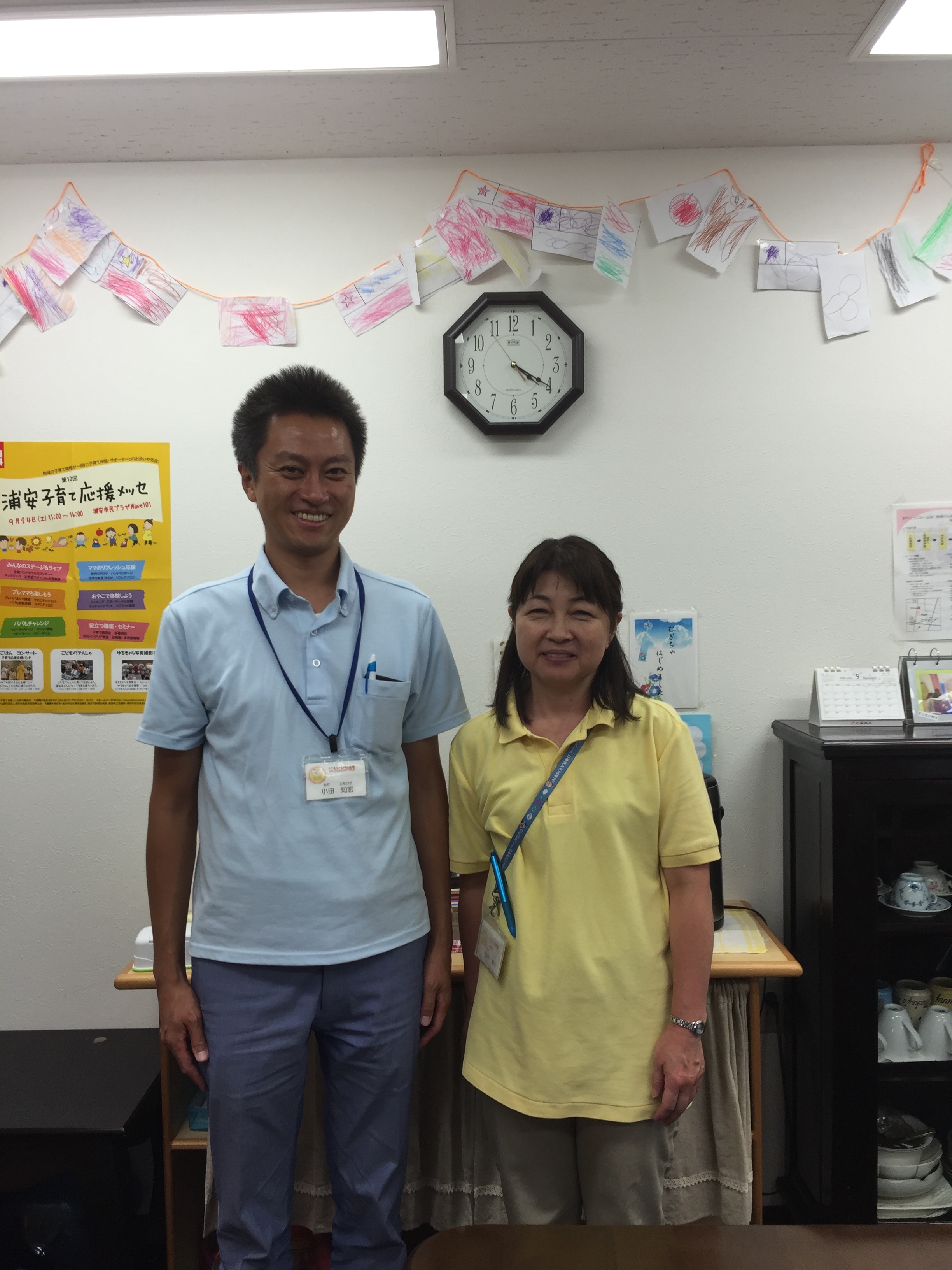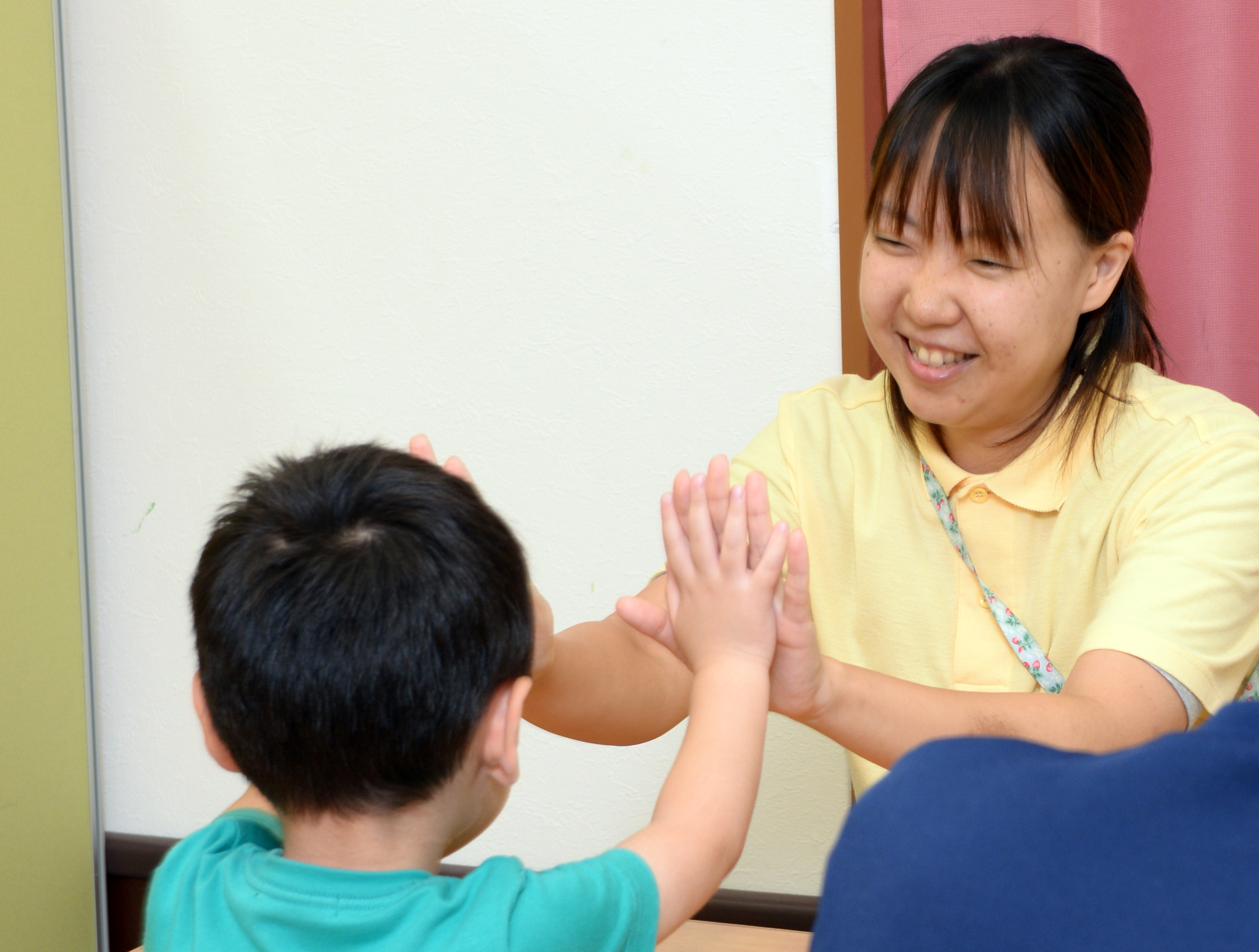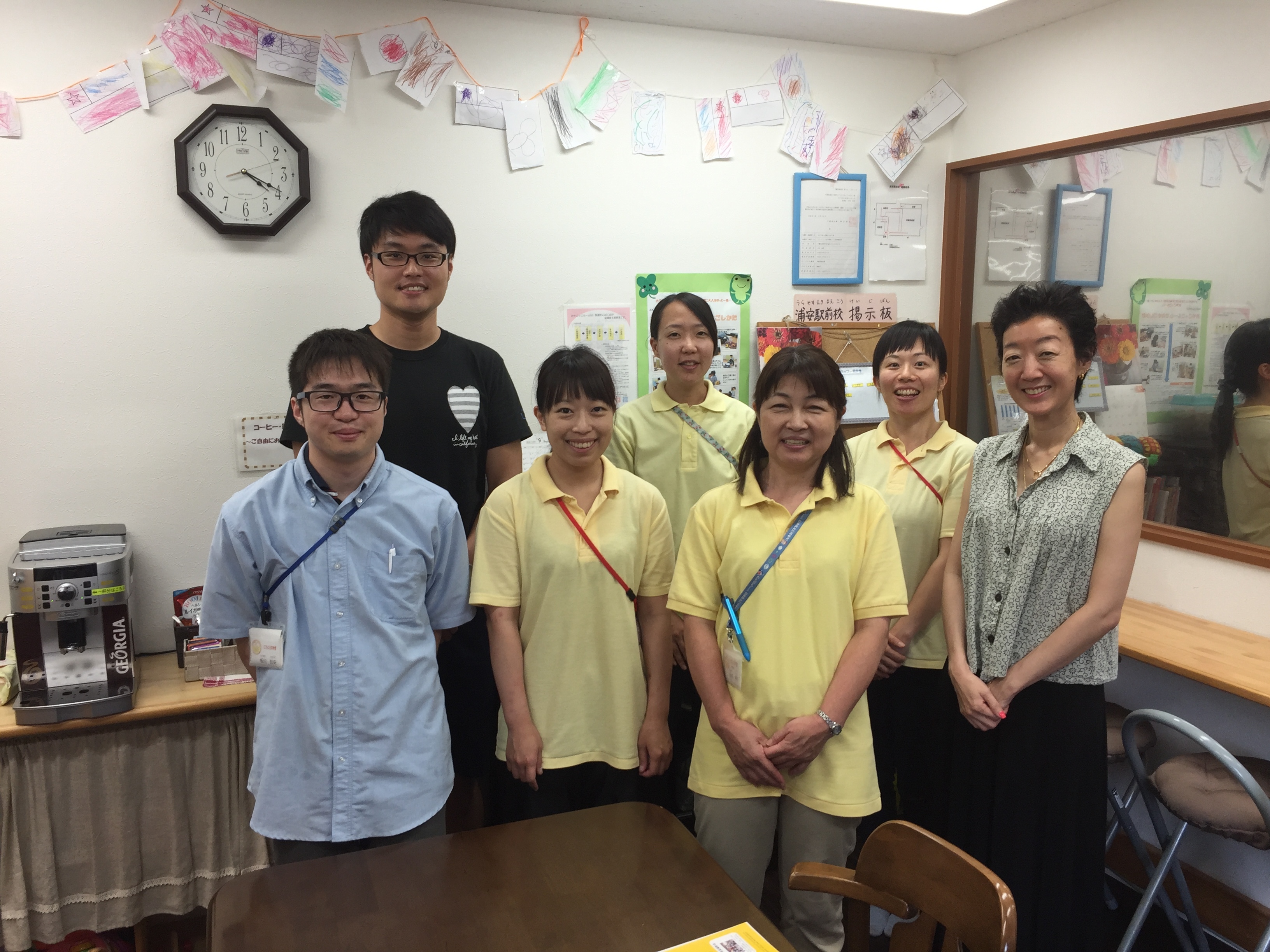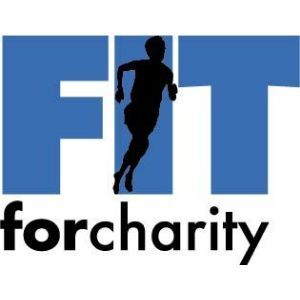NPO Hattatsu Wanpaku Kai
NPO Hattatsu Wanpaku Kai (“Wanpaku”) operates special classes called “Kokoro to Kotoba no Kokko” to provide early intervention for with children with or suspected to have developmental disorders. “Kokko Class” near Urayasu Station is separated into two rooms, where children can be seen by parents through a one-way mirror from the adjacent room. When we visited, we saw children playing freely with the staff, whilst parents could observe peacefully. This time, we were able to interview Tomohiro Oda, Wanpaku’s Chairperson, and Hisako Tanaka, Urayasu Station School Classroom Headmaster and hear their stories.

FIT: Could you please share why you established “Wanpaku”?
Oda: I am 42 years-old and have two daughters. After graduating from University of Tokyo (Faculty of Economics), I worked in Marubeni aspiring to become the president of a business. At that time (1999) nursing care was considered to be a business area with growth potential so I made a career change to COMSN, where as a representative for disabilities support, I first met people with developmental disorders. They are clever, for example, there was a person who can read books very fast, having an extraordinary brain and visual sense to absorb and process information, but was not very strong in hearing and listening ability. Probably the school teachers did not understand their special uniqueness and resulted in them not being able to mix into society and carrying an ‘intellectual disabilities notebook’. If such characteristics were nurtured in childhood, they might have become a great genius. I met many people in similar circumstances and whilst at age of 30 there are not many things can be done from welfare perspective, I think much more could have been done when they were young and potentially led to a totally different life. That is my motivation to be in a business helping support infants with this developmental disorder.
FIT: Please tell us the reason for naming “ Hattatu Wanpaku Kai” and “Kokko”
Oda: The word “Hattatsu” means "development". The word “Wanpaku” means providing an environment for children to maximise their potential, interests and independence, we hope to allow children to prosper through this environment. “Kai” means a group. “Kokko” came from “Kokoro”, which is heart and “Kotoba” which is word. We wanted to connect these two items for children with developmental disorder hence created the word “Kokko”.
We decided to form an NPO so that community in Urayasu will understand the background of these children and help to support them together. We hope the NPO can be part of our society to change and build the community, so the community will be an easier place for people with developmental disorder to live together,
FIT: What is your motivation for continuing these activities?
Oda: I feel motivated when I see children’ growth as they try to engage with other people. That is a much more emotional moment than seeing them first start to write. For example, once there was a child who gave me a chocolate, knowing that it was a big challenge for them, I was very happy. I also see mother’s expressions changing over time – usually more relaxed after 6 months. In addition to seeing my wife and staff enthusiastically coming to work every day, this Spring we had 16 additional staff join to support the children and mothers – seeing their passion to provide a stable environment for the children gives me motivation and purpose.
FIT: Tanaka-san – may I ask your background?
Tanaka: I have worked as nursery staff and public servant for 29 years in Urayasu City. During that time, I thought a lot about “children who are different” and wanted to “understand how their mothers felt.” I then had the opportunity to meet Mr. Oda and “Wanpaku” and decided to make a career change and join them. I am always trying to be “side by side with their mothers”.
FIT: What is the motivation for you, Tanaka-san?
Tanaka: Being able to view the growth of children is very rewarding. Mothers’ smiles are also encouraging. I am grateful to the parents who make the effort to come to visit “Kokko”, as it means their children can come along. I hope to see more mothers’ smiling, as it will positively influence their children – this is something I hope to continue seeing.

FIT: What is the most challenging situation when dealing with children who have a developmental disorder? How do you handle these situations?
Tanaka: As every child is different, it is challenging how to better understand them, move forward and come up with specific ways to help. We also want to be able to help without hurting the children’s self-dignity.
FIT: What would be good advice for people who are not accustomed to interacting with children with developmental disorders?
Tanaka: I am sure this is puzzling for everyone. It takes time to understand a child who is making loud noises or talking to themselves. I hope that people can accept diversity and not be judgmental. The parents are often blamed and this makes it difficult for them to be social and get out of the house. I hope people accept it is natural to have a diverse range of people.
FIT: Is there any message you would like to share with FIT participants and everyone?
Tanaka: We would be delighted to have our friends from FIT come visit us and understand our activities. While of course we are delighted to receive the grant from FIT, we very grateful for the connectivity that we have built, which will lead to a better society.

FIT 2016 Co-VC Tae Ahn and Member Michiko Shima with Tanaka-san and other Wanpaku Staff members

